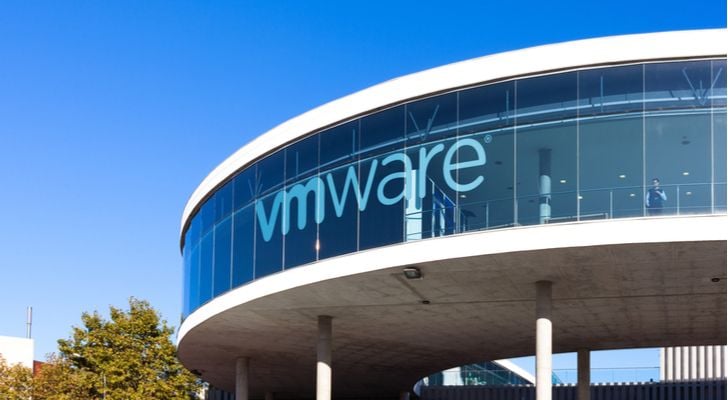Don’t play cards with a guy named Doc. Don’t eat at a place called Mom’s. And don’t take a billionaire’s “favor” to you at face value.
Investors like to ignore that last bit. They’re snapping up a deal by Michael Dell to offer common shares to replace Dell Technologies (NASDAQ:DVMT) tracking stock, in order to gain more control over VMware (NYSE:VMW), the virtualization software company.
Dell had taken his own company private for $25 billion in 2013 and created the tracking stock to finance its $67 billion purchase of VMware parent EMC in 2015. DVMT has since doubled in value, closing June 29 at $84.58-per-share.
In early trade July 2 that rose to $93.58, a gain of over 10%.
Selling Dell to Buy Dell
The rise in DVMT made it a perfect currency for buying back control of VMware, which rose almost 8%, to over $158-per-share in early trade July 2.
DVMT shareholders will get 1.33 shares of a new class C common stock, or $109 in cash, in the offer. VMware, in turn, is handing over $11 billion in a cash dividend to DVMT, cash that will help Dell pay off loans it took out in the original acquisition.
The whole transaction has the fingerprints of Silver Lake Partners — the private equity firm Dell teamed with to go private — all over it. A publicly traded Dell lets Silver Lake get its investment out, the dividend helps get its loans repaid, and Michael Dell himself retains full control of the combined company.
Dell, who started out building PCs out of his University of Texas dorm room in 1984, had a real-time net worth of $23.4 billion as of July 2. That’s up almost 50% from the $15.9 billion he was worth in September 2013, when he first took his company private.
From PCs to Cloud
By going private, then buying EMC, Dell has engineered a transformation of his business, from one focused on PCs to one focused on the cloud.
VMWare produces virtualization software, a key software component for cloud computing, and was itself a partial spin-off from EMC, a storage systems company, which bought it in 2004. VMware eventually became worth much more than its parent, leading to calls from Paul Singer’s Elliott Management to spin it out. Instead, EMC did its deal with Dell and Silver Lake.
Dell needed a cloud infusion, because the PC business had become commodified to the point where Microsoft (NASDAQ:MSFT) was moved to loan Dell $2 billion in 2013, when it threatened to move away from the PC business after its purchase by Silver Lake.
Since then, Microsoft has gone through its own cloud revolution, and is now one of the five “Cloud Czars” with a market cap of about $760 billion. The other “Czars” are Apple (NASDAQ:AAPL), Alphabet (NASDAQ:GOOG, NASDAQ:GOOGL), Amazon (NASDAQ:AMZN) and Facebook (NASDAQ:FB). Between them they’re worth about $3.9 trillion.
The Bottom Line
The new Dell is positioned as a major supplier of both hardware and software to the Cloud Czars, but it’s unlikely this spin-off would have happened had Silver Lake not been interested in getting the cash invested in its Dell deals back into its own hands.
My own guess is that the deal means cloud investment could peak sooner than expected, with fewer new data centers and more investment in upgrades like graphics chips to handle artificial intelligence applications. That would not be good for Dell’s new public shareholder partners.
Dana Blankenhorn is a financial and technology journalist. He is the author of the historical mystery romance The Reluctant Detective Travels in Time, available now at the Amazon Kindle store. Write him at danablankenhorn@gmail.com or follow him on Twitter at @danablankenhorn. As of this writing, he owned shares in AMZN and MSFT.

